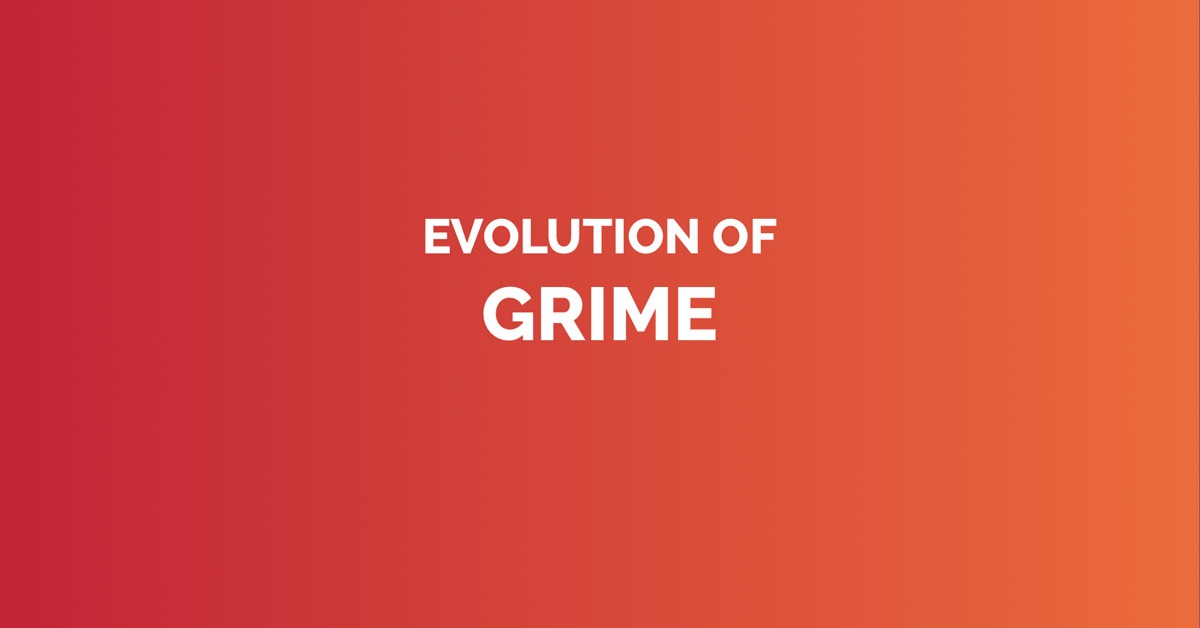History
UK garage producers like DJ Target and his Pay As U Go crew paved the way for grime by layering street-reporting lyrics over a garage-style, 140 BPM tempo that carried the energy of jungle music. Though the sound originated in London’s underground, grime artists like Dizzee Rascal managed to achieve commercial attention in the early 2000s. However, by the late 2000s, grime saw a serious decline in public interest as its first wave of producers drifted towards dubstep, funky house, and mainstream dance tracks. Grime went back to the underground until around 2013 when Meridian Dan released “German Whip” that hit 13 on the UK singles charts. The genre was back, not only as UK’s answer to American gangsta rap and hardcore, but as a distinctly British style of music.
Influences
Grime is rooted in UK garage and jungle music, but what sets grime apart is its vocal delivery style. It has a strong lineage to Jamaican toasting from the 1960s, which was where an MC would show off their best flow over instrumental versions of reggae tracks.
Sound
Grime’s breakbeats stem from the reggae and jungle tradition, with rapid-fire MCing also being a notable sonic staple. This style of rapping often involves an incredible barrage of words packed into sixteen bars, followed by a ‘reload’ of eight bars, where the MC will repeat the chorus or a rousing anthem before launching back into another sixteen bar verse.
Dizzee Rascal – “I Luv U”
London, England, 2003
Dizzee Rascal was an early grime producer, and his 2003 album Boy in da Corner helped lay a solid foundation for the genre.
Wiley – “Wot Do U Call It?”
London, England, 2004
On “Wot Do U Call It?” Wiley plays on the fact that he’s making a type of music that no one has a name for yet, with such bars as, “Who told you that I make garage?”.
Lethal Bizzle – “POW”
London, England, 2004
This popular track was banned at clubs across the UK due to the fights that tended to erupt during the song’s chorus of, “POW!”.
Chipmunk – “Man Dem”
London, England, 2009
Chip won the award for Best Grime Act at the 2016 MOBO awards, but as you can hear on this track, he’d been putting out solid music long before that.
Meridian Dan – “German Whip”
London, England, 2013
After a brief moment in the sun, grime was declared dead by many in the late 2000s music industry. That is of course, until Meridian Dan’s “German Whip” rocketed the genre back into the mainstream.
Lady Leshurr – “Queen’s Speech Ep.4”
Solihull, United Kingdom, 2015
Lady Leshurr is fantastic on “Queen’s Speech”, where she mixes tight lyrical delivery with the occasional well-sung word or two.
Skepta – “Shutdown”
London, England, 2015
With Konnichiwa, Skepta won Britain’s prestigious Mercury Prize, pushing grime even further into the mainstream with his infectious and relentless vocal style.
Stormzy – “Big For Your Boots”
London, England, 2017
After a nine-month hiatus in 2016, the king of grime jumped back into the public eye with an absolute banger called “Big for Your Boots” featuring his trademark vocals with a slightly slicker production.
Little Simz – “Offence”
London, England, 2018
It wasn’t until her third album Grey Area that the extremely talented Little Simz gained the popularity she deserved. She’d been putting out cutting-edge and genre-defying hip hop ever since her first album.
Flohio – “Bands”
London, England, 2018
Flohio started out as a shy teenager freestyling at a London youth centre, and has since developed into a fiery hip hop artist who speaks for those without a voice.
slowthai – “Nothing Great About Britain”
Northampton, England 2019
Slowthai gained notoriety for his biting satire and sharp delivery, but really made a name for himself when he held up a fake severed head of Boris Johnson during a performance at the Mercury awards in 2019.
Wiley & Scrufizzer – “Mazza”
London, England, 2020
Wiley was among the first to define the grime sound in 2001 and he’s generally remained true to his roots as heard here on “Mazza”.





















